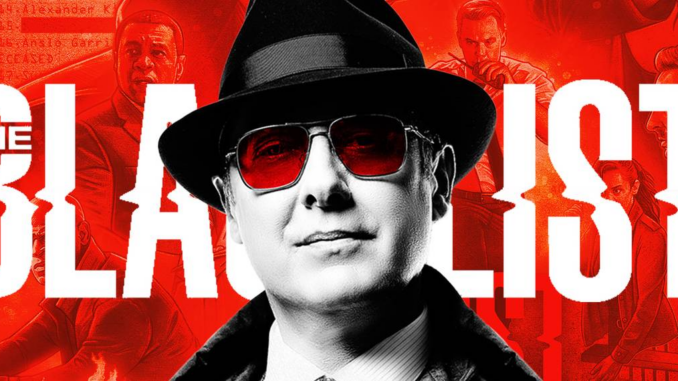
If you’re a fan of The Blacklist, it’s hard to ignore the feeling that the show has been circling the drain for a while. What was once a suspenseful, gripping crime thriller has, in recent seasons, begun to lose its edge. While the show still has its loyal following, there’s a growing consensus that The Blacklist should’ve ended after this season. In this article, we’ll dive into why The Blacklist is no longer living up to its former glory and why wrapping things up after this season might have been the best decision for the show’s legacy.
1. A Brief Overview of The Blacklist’s Rise and Fall
When The Blacklist first premiered in 2013, it was a breath of fresh air. The premise—Raymond “Red” Reddington, a criminal mastermind who surrenders to the FBI and offers to help catch other criminals on his “Blacklist” in exchange for immunity—was intriguing. James Spader’s captivating performance as the charming yet sinister Red kept viewers hooked season after season. But like many long-running shows, The Blacklist has started to lose its initial spark.
With each passing season, the storylines have become more convoluted, and the plot twists feel more forced. While the earlier seasons kept fans on the edge of their seats, more recent episodes have often left them scratching their heads. So, what went wrong?
2. The Declining Quality of Storytelling
In the first few seasons of The Blacklist, the episodes were tight, suspenseful, and packed with tension. The show had a clear direction—each episode would introduce a new criminal from Red’s list, and the FBI team would work to bring them down. Meanwhile, Red’s mysterious past and his relationship with Elizabeth Keen (Megan Boone) provided the emotional anchor.
However, as time passed, the storylines began to feel more disjointed and repetitive. The show became reliant on filler episodes that didn’t advance the central plot. Instead of fresh and exciting story arcs, we saw recycled tropes and underdeveloped characters. Fans began to question: was this show ever going to wrap up its numerous loose ends, or was it simply spinning its wheels?

3. The Loss of Central Characters
One of the key reasons The Blacklist has lost its charm in recent seasons is the departure or sidelining of major characters. Megan Boone’s Elizabeth Keen, who was central to the show’s story, became less and less involved, especially in the later seasons. Her exit from the series left a noticeable gap in the emotional core of the show.
In addition to Boone’s departure, other key characters like Samar Navabi (Mozhan Marno) and Tom Keen (Ryan Eggold) have either left the show or been written out in ways that felt rushed or unsatisfying. Without these integral characters, the show lost much of the chemistry that made it special in the beginning.
4. The Complexity of Red’s Mystique Wore Thin
In the early seasons of The Blacklist, one of the show’s main draws was Raymond Reddington’s mysterious backstory. Fans were hooked on the idea that Red had a secret connection to Elizabeth Keen, and we spent seasons piecing together clues about his past. But as the story continued to unfold, the mystery started to feel more like a series of unresolved questions that never really paid off.
The longer the show stretched the mystery, the more it began to feel artificial. The creators kept throwing out new twists and revelations, but many of them felt forced or contradictory. What was once a tantalizing mystery became a muddled narrative that no longer held the same intrigue. Instead of answering questions, the show seemed to be creating more with every season, and eventually, it all became too much.
5. Repetitive Storylines and Stagnation
A hallmark of many long-running TV shows is the tendency to recycle storylines and plot devices. Unfortunately, The Blacklist has fallen into this trap in recent seasons. The episodic formula of chasing down criminals from Red’s list became predictable, and the overarching plots began to feel tired and formulaic.
The show started to rely heavily on repetitive tropes—including sudden betrayals, improbable alliances, and mysterious new enemies—none of which seemed as fresh as they once did. Fans began to tune out because they knew what to expect, and the anticipation that once made the show a must-watch began to dissipate.
6. The Overuse of Flashbacks and New Characters
Flashbacks have always been a tool used in The Blacklist to build Red’s backstory and develop characters. But in the later seasons, they became overused and less effective. Instead of advancing the plot, many flashbacks seemed like a way to fill time, and new characters were introduced that didn’t add enough depth to justify their inclusion.
Rather than deepening the existing plot or characters, these flashbacks and new faces cluttered the show and detracted from the core story. What worked early on—mystery and slow revelation—was now being bogged down by unnecessary diversions.
7. The Exit of Key Creative Forces
It’s no secret that the creative team behind any successful show plays a huge role in maintaining its quality. Unfortunately, as The Blacklist progressed, there were significant changes behind the scenes. Creators and showrunners who initially shaped the show’s direction began to leave, and with them, a sense of vision and purpose started to fade.
Without the guiding hands of the original creators, The Blacklist struggled to maintain its consistent tone. New showrunners attempted to take the reins, but it often felt like they were trying to continue a story that had already run its course.
8. The Declining Ratings and Fan Response
The undeniable truth about any long-running show is that ratings and fan engagement begin to decline as the seasons go on. While The Blacklist had a loyal fanbase throughout its run, there was a noticeable dip in ratings in recent seasons. As the show’s plot became more convoluted and repetitive, it became harder to attract new viewers, and even some of the original fans started to drift away.
Social media and fan forums began to reflect this shift, with more discussions centered around how the show had lost its spark. It’s hard to ignore the fact that the enthusiasm for new episodes was waning, and fans started to wish the show would end on a high note, rather than dragging on.
9. Could the Show Have Ended on a High Note?
There’s no denying that The Blacklist had its moments. Some seasons were nothing short of thrilling, and there were episodes that truly captured the magic that made the show a hit. But as time went on, it became clear that the show was no longer reaching the same heights.
The season in question—the one where the show should’ve ended—had all the hallmarks of a strong conclusion. There were emotional resolutions, character arcs wrapped up nicely, and a sense that the story had come full circle. Had the show ended then, it would have left a lasting legacy of quality storytelling.
10. The Case for Moving On
At this point, it seems clear that The Blacklist should have concluded after this season. Rather than risk tarnishing its legacy by stretching the plot further, the show should have chosen to bow out gracefully. By ending on a strong note, the creators would have left fans with a satisfying conclusion, one that honored the show’s initial brilliance.
Conclusion: Time to Say Goodbye to The Blacklist
In many ways, The Blacklist had a remarkable run. It captivated viewers, spawned memorable characters, and provided intense drama for years. However, as the seasons passed, the show lost its focus, and the once exciting premise became formulaic. With the declining quality of storytelling, the departure of key characters, and the overuse of repetitive plotlines, it’s clear that The Blacklist should’ve ended after this season.
Ending the show on a high note would have preserved its legacy and ensured that fans remembered it for its thrilling and mysterious beginnings, rather than its drawn-out conclusion.
FAQs About The Blacklist
1. Why did The Blacklist start to decline in quality?
Over time, the show became reliant on repetitive storylines, the overuse of flashbacks, and an increasing number of new characters. The mystery behind Red’s backstory also began to feel forced and less impactful.
2. Did Elizabeth Keen’s exit impact the show?
Yes, Elizabeth Keen was a central character, and her exit left a noticeable gap in the emotional core of the show, making it harder for The Blacklist to maintain its appeal.
3. Should The Blacklist have ended earlier?
Yes, many fans feel that the show would have been more impactful if it had wrapped up after its peak seasons rather than dragging on.
4. What made the first seasons of The Blacklist so good?
The early seasons had tightly written storylines, fresh twists, and compelling character development, particularly with Red and Elizabeth’s complex relationship.
5. Will there be a spin-off of The Blacklist?
While a spin-off has been discussed, it remains uncertain whether any future projects related to The Blacklist will capture the same magic as the original series.
